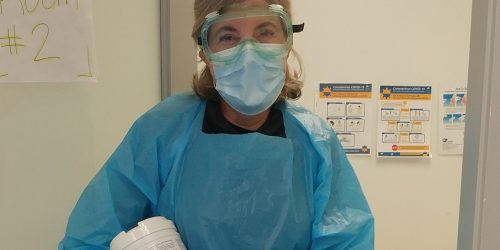Redeployed: A hepatology nurse on the COVID-19 front lines
May 19, 2020 • By Lesley GallagherI have worked as a nurse in the Downtown Eastside of Vancouver, or what we call DTES, for almost 20 years, first for the University of British Columbia and now for the Vancouver Coastal Health Authority, based at Pender Community Health Centre.






